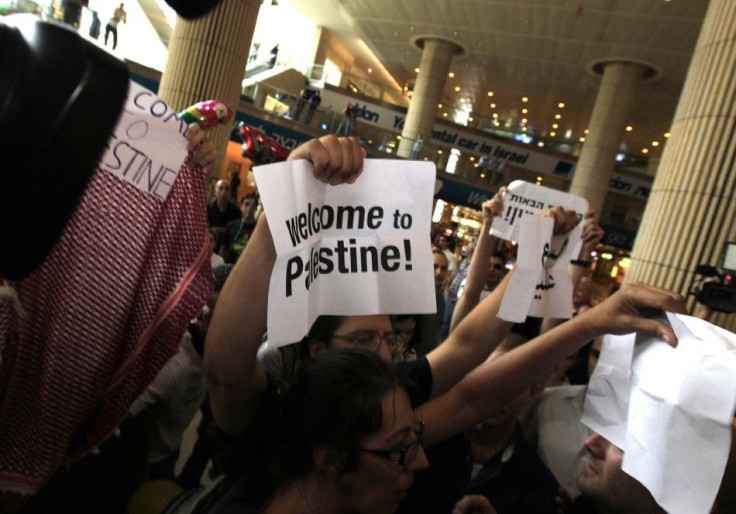Palestinian Statehood Vote Opposed by Obama, Congress

The Obama administration and lawmakers are scrambling to preclude an upcoming United Nations vote that could grant the Palestinians formal recognition as a sovereign state.
The United States finds itself in a precarious position with the Sept. 19 start of a United Nations General Assembly session swiftly approaching. If America votes against elevating Palestine's U.N. status from an observer without voting rights to a nonvoting member state, it would likely lose credibility and influence in the Arab world, especially because it would likely be among a minority of U.N. countries opposing the measure.
A vote for the upgrade would alienate Israel and its allies at a time when Israel is grappling with rising hostility and the deterioration of diplomatic relations with its neighbors.
Premature Statehood Seen Hurting Israel's Negotiations Stance
The Obama administration believes that elevating Palestine's status would undercut efforts at reconciling with Israel because it would circumvent a mutual agreement, allowing Palestinians to achieve their goal without Israeli input. Obama has worked through diplomatic channels to dissuade the Palestinians from pursuing a vote, seeking instead to lure the two sides back to the negotiating table.
While Obama has not explicitly opposed a vote, State Department spokeswoman Victoria Nuland told reporters on Thursday that the United States would veto the resolution, the first official articulation of that position.
The U.S. opposes a move in New York by the Palestinians to try to establish a state that can only be achieved by negotiations, Nuland said. So, yes, if something comes to a vote in the U.N. Security Council, the U.S. will veto.
But diplomatic efforts have thus far proved fruitless. Palestinian President Mahmoud Abbas rebuffed Middle East peace envoy David Hale presidential adviser Dennis Ross on Wednesday, telling them that seeking recognition from the UN would overcome the impasse [in the peace process] caused as a result of Israeli intransigence.
Congress has also applied pressure, seeking to revoke U.S. aid to Palestine if the resolution comes to a vote (according May 31, 2011 Congressional Research Service report, from 2008 to the present, annual American bilateral assistance to the Gaza Strip and the West Bank has averaged over $600 million). A bipartisan Senate resolution passed in June called for restrictions on aid to the Palestinian Authority should it persist in efforts to circumvent direct negotiations by turning to the United Nations or other international bodies.
Rep. Ileana Ros-Lehtinen (R-FL), chair of the House Foreign Affairs Committee, has advanced legislation that would suspend funding to any U.N. agency or program that supports the Palestinians' bid for elevated status. Ros-Lehtinen has also urged Obama to abandon diplomatic nice speak and more forcefully come out against the resolution.
I think President Obama should have come out clearly and said we will veto this, Ros-Lehtinen told Reuters.
© Copyright IBTimes 2024. All rights reserved.











